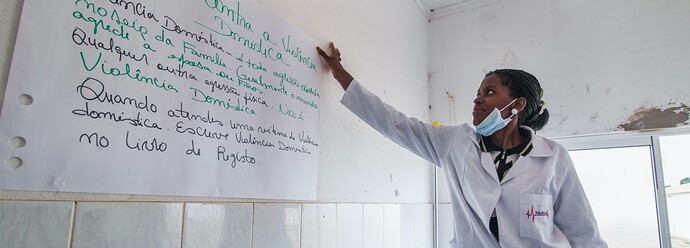Join us for an online written discussion with a panel of experts to explore how business can respond to an increase in gender based violence during the COVID-19 outbreak
Live Panel
Monday 6 April, 10am-11am EDT (3pm-4pm BST/ 5pm-6pm EAT) [ADD TO CALENDAR]
Background
Gender Based Violence (GBV), particularly domestic violence and sexual harassment, are already a challenge for business - resulting in significant impacts on worker wellbeing, losses to productivity and reputation.
In the wake of the COVID-19 pandemic and ‘stay at home’ regulations, domestic violence and online bullying and harassment are expected to rise. In the UK, for example, Avon and Somerset police reported a 20.9% increase in domestic abuse incidents during the first two weeks of lockdown. In previous emergencies, including the earthquake in New Zealand, there was a 53% rise in domestic violence and nearly a doubling in the wake of Hurricane Katrina in the United States.
This increase in violence will be happening at a time of reduced capacity of service providers (health, police, social care) to cope with the increased demand.
Panellists
- Seyi Akiwowo, Founder, Glitch
- Alice Allan, Challenge Director, Business Fights Poverty
- Anita Bhatia, Deputy Executive Director for Resource Management, Sustainability and Partnerships, UN Women
- Chiara Condi, Gender Expert and Founder, Led by HER
- Natalie Deacon, Executive Director Corporate Affairs and Sustainability, President Avon Foundation for Women, Avon
- Raquel Lagunas, Senior Policy Advisor on Gender Mainstreaming, United Nations Development Programme
- Ludo McFerron, University of Sydney
- Verity O’Shaughnessy, Partnerships Manager, Care International
- Dr Jane Pillinger, Visiting Senior Research fellow, Open University
- Victoria Spencer, Social Development Adviser, Violence Against Women and Girls Team, Department for International Development
- Lee Webster, Deputy Director International Development Policy and Practice, ActionAid UK
Questions
-
Why is there likely to be an increase in gender based violence during the COVID-19 outbreak and will the impacts be for individuals and business across the value chain?
-
What can companies do to support employees internally - what new policies and processes need to be put in place?
-
How can companies harness their core business strategies including marketing and innovation as well as philanthropy to respond to the increase in violence?
Format
This is a text-based discussion. There will be no video or audio. Please post your comments below. After the live session, this discussion will remain open, so please do continue to share your insights. To receive a free summary of this discussion afterwards, register here
How to participate
To post a comment, you will need to sign in / sign up to the Business Fights Poverty Discussion Forum:
If you are already a member of the Business Fights Poverty online community, click “Log In” at the top right of the page and then enter your details. If you have not logged into our new community platform, you will have to reset your password here
If you are not already a member of the Business Fights Poverty online community, you will need to sign up here. Once you are have joined the community, you can return to this discussion page, click “Log In” at the top right of the page and then enter your details.
